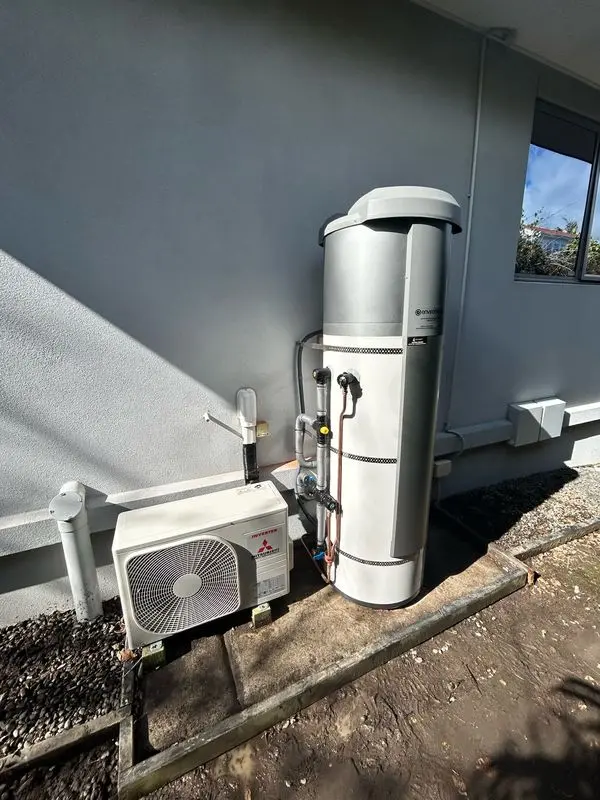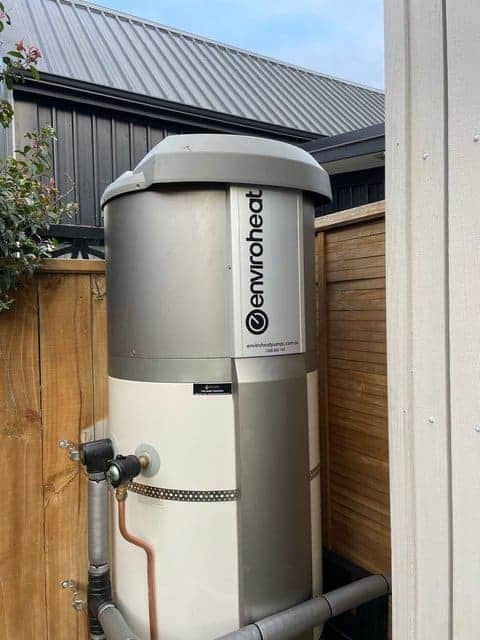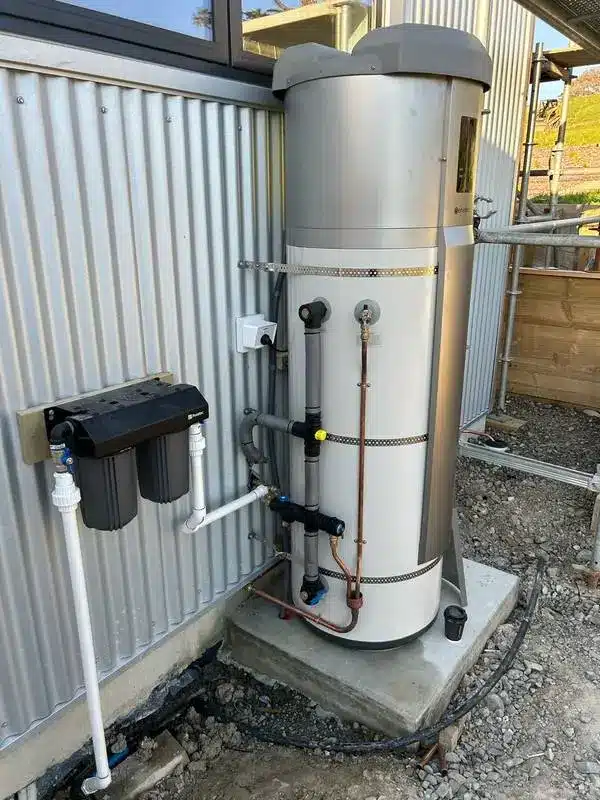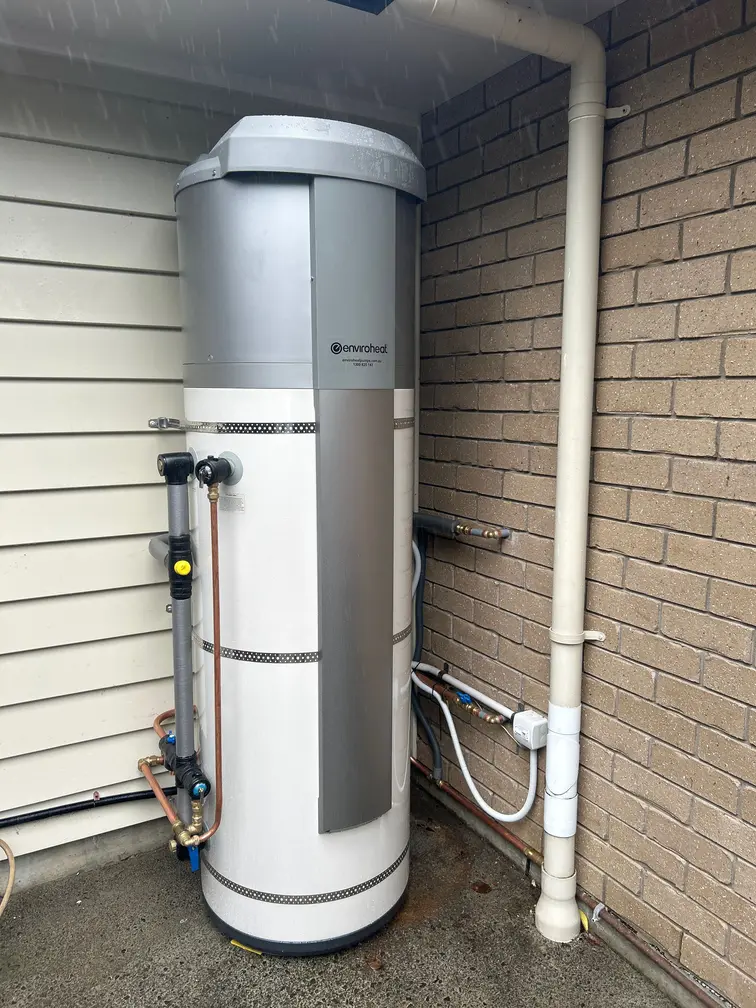When your old hot water system fails, you have an opportunity to upgrade to a more advanced, energy efficient appliance. Two popular options for eco-friendly hot water are heat pump units and solar water heaters. Both use renewable technology to cut energy consumption and costs versus traditional tanks. To pick the best green solution for your home, compare heat pumps versus solar power based on efficiency, upfront expenses, maintenance, warranties, longevity, environmental benefits, suitable climates, and more.
Efficiency Ratings
Efficiency ratings indicate the appliance’s hot water heating capabilities and energy use. The higher the number, the greater percentage converted from renewable inputs to useful heat energy for water. Solar water systems offer excellent efficiency up to 90%. High performing heat pump water heaters reach 200-350% efficiency by extracting latent air heat. Efficiency credentials give solar power an advantage for extremely hot water. But heat pumps achieve more cost savings overall through greater renewable heat production.
Maintenance Requirements
Solar hot water appliances need regular maintenance like checking antifreeze levels, inspecting pipes and valves for leaks, preventing scale buildup, and testing heating fluid levels. Heat pump water heaters mainly just require periodic air filter changes and exterior coil cleanings. So, heat pump systems involve less cumbersome maintenance overall. DIY solar upkeep lowers costs, but complex repairs often require technicians.
Product Warranties
When spending thousands on new systems, product warranties bring peace of mind. Many heat pump water heaters come with 6–10-year limited warranties on sealed systems and parts. Solar water heating systems typically offer 5–20-year warranties depending on components. Verify coverage for labor, parts defects, freeze damage, leaks, and more. Better warranties provide longer lasting assurance and financial protection.
System Longevity
With proper maintenance, solar hot water systems can function reliably for 20-30+ years. But glycol solar fluid requires replacement every 5-10 years to maintain efficiency. Over decades, parts like electric pumps and controllers wear out too. Modern heat pump water heaters last 10-15+ years. Though replacement costs are lower if repairs eventually prove necessary. For the longest lasting zero emission hot water, solar power gets the edge.
Environmental Benefits
Both technologies provide outstanding environmental advantages over conventional water heating methods. Solar power harnesses the sun’s renewable energy for up to zero emission operation capabilities. Heat pumps also produce zero direct emissions. And they prevent substantial carbon pollution by using minimal electricity versus standard units. For the best overall carbon footprint, properly sized solar models are unmatched.
Ideal Climate Suitability
Solar solutions perform best in warmer, sunnier environments that maximize solar radiation absorption. Heat pump water heaters work well across all climates, even cooler northern regions. So, climate plays a pivotal role in feasibility. Cold winter areas often rely more on secondary electric elements with solar models. While heat pumps maintain efficient compressor-based heating year-round in any weather. Colder regions favor heat pump benefits.
Hot Water Delivery
Turning on a hot water tap showcases key performance differences. Solar power heats water on demand via pumps circulating fluids through roof panels. This direct heating method delivers hotter water faster. Heat pumps require activating compressors and fans to extract ambient air heat. So, they lack on demand capabilities, taking longer to heat incoming cold water. Solar water heating offers better responsiveness meeting quick hot water needs.
Operating Costs
Both systems majorly reduce monthly bills over conventional water heating. Solar power uses free plentiful fuel – sunlight. So operational costs involve just circulating pumps and minimal standby losses. Heat pumps consume some electricity for compressors/fans, though far less than standard appliances. Estimates show solar saves ~50-80% on water heating bills annually. Similarly, heat pumps reduce costs by half or more. Solar achieves slightly greater savings, but heat pumps still majorly reduce expenses.
Final words
For eco-friendly water heating that saves money over time, solar and heat pump systems make excellent choices with high efficiency ratings and minimal carbon footprints. Compare upfront costs, maintenance needs, product warranties, lifespan projections, climate suitability, and operating expenses. In the end, solar power does provide optimal efficiency and environmental gains. But heat pumps also offer outstanding green benefits more affordably to broader consumer markets. Technology upgrades homeowners from conventional water heating for the 21st century.



